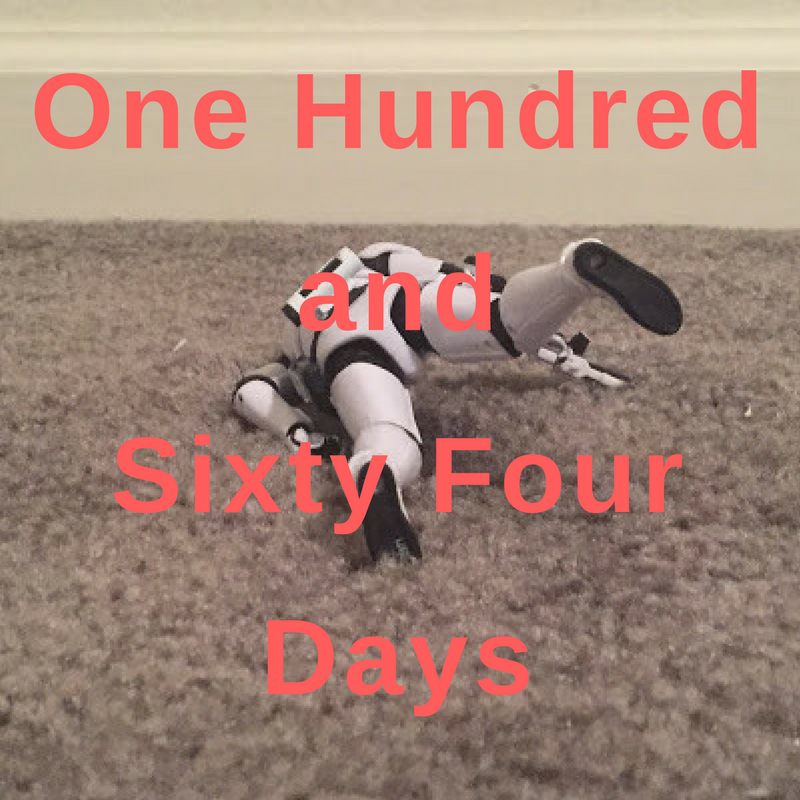
The best moment in the season finale of season four of Louie wasn't even a Louie moment - it wasn't a misunderstanding or a missed connection or a miserable shrug, or even anything Louie did. Halfway through "Pamela Part 3," Marc Maron appears on the left of the frame, almost literally pushing his way onto the screen and to a seat at the table opposite Louie. What follows over the next minute isn't any kind of good-natured ribbing, but an actual heartfelt talking-to, with Maron in the position of the finally successful journeyman comedian lambasting the man who used to be his best friend for having abandoned him during a rough patch and not even trying to hide his obvious jealousy at their reversal of fortune.
It's bracing. Maron has matured into a commanding television presence, and sitting opposite Louie - affecting his shy awkward everyman persona - the contrast is not flattering to Louie. It's very much what would happen if John Cassavetes wandered onto the set of a Woody Allen movie: in the midst of understated, stylized character moments, suddenly there's a bull charging through the heather, saying exactly what he means and staring down the camera with literal-minded aggression. Comparing Louie CK to Marc Maron really isn't a good idea - as performers, they couldn't be more different, even if much of their comedy mines similar veins of self-deprecation and misery. Red apples and green apples. But at the same time, it was hard not to think that Maron walked away with the upper hand: put an understated performer like Louie next to a dominating presence like Maron and obviously one of them is going to look pallid.
But then, that's exactly what Louie wanted. The whole episode was perfectly manufactured: after a season of halting personal growth on Louie's part, being forced to confront his most galling deficits as a friend and a professional right at the moment of his apparent triumph - well, that was exactly what Louie needed to keep the last episode from sinking too deeply into a saccharine morass. Right after the encounter with Maron at the nightclub, Louie gets a pep talk from his new girlfriend Pamela about just how meaningless that kind of success really is - TV shows and high-profile bookings and financial security and all that. And it's all OK, because the jealousy has been countered, Maron's achievements have been placed in context, and Louie gets to enjoy his walk into the sunset.
The problem is that the moment didn't quite work the way Louie intended, and it didn't work in the same way that a number of similar moments fell flat for Louie this season. Look at the scene in context: Louie is counting on his audience knowing that the two comedians are more or less reversed here. Louie was the first to get massive success from a TV show, following the aborted first run of Lucky Louie back on HBO. In the four years since Louie premiered on FX his star has risen precipitously, elevating his status from that of a well-respected comedian's comedian to practically a secular saint, a comedy genius ready to take his place in the pantheon alongside George Carlin and Richard Pryor and Bill Hicks. Given this, the backlash against Louie CK and Louie was inevitable. And, at this juncture, at least somewhat justified.
Because, and this is crucial, Marc Maron didn't succeed before Louie. He struggled through the wilderness far longer than Louie, only achieving his current prosperity after the surprise success of his podcast. His TV show, now in its second season on IFC, is obviously influenced by Louie, and it's unlikely he would even have a single-camera basic cable sitcom at all if Louie hadn't already popularized the format as a showcase for comedians. So there's every reason to believe that Louie, in ventriloquizing Maron for "Pamela Part 3," was tapping something deeper than merely a necessary story beat. Louie's long and troubled relationship with Maron is public record, after all, and even formed the basis for Season 3's "Piano Lesson." This territory is fair game for both men, who are never unwilling to dredge up the most embarrassing and self-excoriating personal details for their comedy. The problem is that in reversing their positions, putting Louie's words in Maron's mouth, and then having Pamela Adlon deliver a pep talk to Louie about the relative meaninglessness of success, the effect is not so much Louie appearing humble and contrite, but Louie appearing to diminish Maron's achievements.
There are a few moments like that throughout the season, where the contrast between Louie-the-Character and Louie-the-Writer results in the appearance of Louie trying to have his cake and eat it too. He can humiliate Louie the Character however he wants, he can have Louie the Character do any number of terrible things, but it's just a character, and the worse TV Louie looks, the better Real Louie seems in reflection. At a certain point his lovable schlub everyman persona starts to ring false. Willa Paskin, writing for Slate, explains the problem better than I could:
Every time Louis C.K. takes Louie down a peg, he burnishes himself. When Louie is behaving horribly, C.K. knows it. When Louie is being embarrassed, C.K. is being gutsy. Moments that puncture Louie make C.K. look good. When Louis C.K. writes a speech about how a man with a TV show is “just a guy,” he contributes to the myth of himself, so upstanding he keeps humbly insisting he’s regular, which is proof positive of his irregularity.The season's second episode, "Model," rings similarly false after the punchline, wherein Louie the Character is saddled with a ruinous $5 million settlement after accidentally disfiguring an astronaut's daughter. It;s funny, but it - along with the episode's running joke about Louie being the enormously wealthy Jerry Seinfeld's whipping boy - would have been funnier if it hadn't premiered just a couple weeks before Louie made headlines for buying Babe Ruth's Hampton's estate for $2.5 million. Is that relevant? Louis CK is hardly the first comedian - not by a few hundred, at least - to make money off an everyman persona while raking in money. How is his doing it any different from, say, Roseanne, who made her fame by appearing much poorer and whose TV show made her much richer than Louis CK?
Maybe it doesn't. But it nevertheless left a sour taste in my mouth, and it took me a while to figure out why it bugged me in a way that, say, Roseanne didn't. It wasn't until the "Pamela" series that I figured it out: Louie is starting to believe his own hype. At a certain point he started reading his reviews and believing the rapturous hype from his legions of fans. And that's poison. That's the moment every comedian dreads, because that's the moment after which it becomes harder and harder to be funny.
Every comedian with ambitions beyond merely making people laugh runs into this eventually. Bill Cosby did. Robin Williams did. It's the point where, instead of being content to make people laugh, they want to make people think, and they become convinced of their own profundity. A good stand-up makes you think without condescending. A good stand-up becomes a bad actor by thinking their wisdom - the kind of wisdom a good stand-up keeps on the edges of his or her material, hard-earned and painful and wry - can stand by itself, when it usually can't. Remember when Robin Williams used to be funny?
Am I overstating my case? Look at the evidence from the first two parts of "Pamela." The first part features Louie assaulting his putative girlfriend in the front hallway of his apartment, closing the door on her and wrestling an extremely unpleasant and grudging kiss from her. It's a terrifying scene. It's brutal. It's a woman's nightmare - Louie, you can easily see, isn't a particularly bad man, he's not a rapist in a dark alley, he doesn't fit any profile of a sexual predator. And yet he does a terrible, terrible thing, assaulting Pamela, closing off her means of escape, and extorting a kiss. I was flabbergasted at the scene when it broadcast. Surely there was some point to this. This was precisely the type of tone-deaf and dangerous behavior that we'd just spent weeks discussing during the aftermath of the Santa Barbara shooting and the "Not All Men" hashtag backlash. For Louis to do so, it had to mean something. It couldn't simply be, as presented, merely a comedic aside in the comedy of errors that was Louie's long-term courtship of Pamela. There had to be something more at work here.
Sure enough, most writers who discussed the scene qualified their reaction by pointing out that this was only part one of a three-part story, and that there was plenty of room left for Louie to deal with the repercussions of the act. The week after "Pamela Part 1" aired, the series was interrupted by the extended (and laborious) flashback "In the Woods." Two weeks later the second and third episodes of "Pamela" aired as the season finale. Viewers who turned in looking for Louie to deal with the consequences of the assault were left grievously disappointed. Not only was the incident not addressed, it was even repeated. After a romantic date, Louie and Pamela return to his apartment. She tries to leave. Again, he blocks her way. He was expecting sex. He says so explicitly. She didn't want to. When he finds out she's being serious, he unbars the door and retreats to the living room, where he proceeds to sulk. He lays out a monstrous guilt trip which eventually forces her to concede to his desires, and they finally have sex.
Now, there are a number of things going on in this scene. This is meant to be the climax of Pamela's courtship, after all, and her chronic mixed signals are one of the major factors in the relationship being as fucked up as it is. There is a legitimate conversation to be had at this point in their relationship regarding her inability to commit to Louie, despite her having frankly and explicitly stated her interest and then (more than once) having withdrawn it. Louie is, all other things being equal (and sexual assault having been magically forgotten), completely justified in at least part of his frustration - not the frustration at feeling he is "owed" sex for having taken her out for a date, but certainly the frustration of being legitimately confused by her inability to properly articulate her mixed feelings. But instead of expressing any of this in a reasonable, nonthreatening manner - or, more to the point, simply walking away and allowing the situation to defuse itself for the moment - he attacks her, then sulks and broadcasts his hurt feelings, putting the responsibility on her to make him feel better after he tried to force himself on her. And then they fuck and everything is OK, and they're boyfriend and girlfriend. And that's a happy ending.
Now, the onus is not on Louie the Character to be perfect. Far from it. But the onus is on Louis the Writer to be responsible. This is, after all, the overriding theme of Louie, from the very first episode of the first season: how to act ethically in an amoral world. Most comedians are moralists. This is where good comedy comes from - the dichotomy between how people should act and how people do. Every great comedian figures out how to articulate a vision of the world and the people in it through their humor. The problem happens when the comedian steps out from behind his jokes, and takes it upon himself to propound a utopian vision without the leavening effects of self-laceration. It's what separates early 80s Robin Williams - high on coke and unafraid to humiliate himself - from the Robin Williams of Dead Poet's Society and Patch Adams. And it's why Roseanne never crossed the line, at least during her comedic prime - she was always the first to acknowledge just how absurd her foul-mouthed and overweight everywoman persona really was, and she was always the first to laugh at herself.
In order for Louie to succeed, Louis CK has to be not just funny, but his aim must be unerringly true as well. Pointing out the foibles of the world only works if you remember that your own foibles are the most important of them. Comedians have to be their own ombudsmen. In completely misjudging the way sexual assault plays in parts 1 & 2 of "Pamela," for using Marc Maron to voice his own feelings of resentment in "Pamela Part 3," for dislocating his shoulder while patting himself on the back for his enlightened view of fat women in "So Did the Fat Lady," Louie proves that he's losing his capacity for self-judgment. Rather than appearing wise and wry, Louie now seems shrill and smug. Who knows if he'll be able to right the course. For the time being, Maron has far eclipsed Louie. Marc Maron isn't quite so convinced of his own faultlessness, but more importantly, he's just funnier.





No comments :
Post a Comment